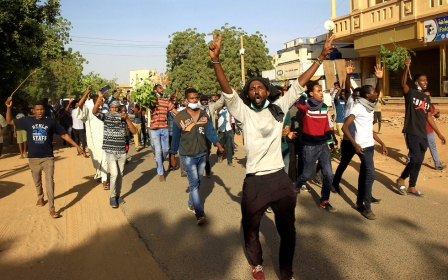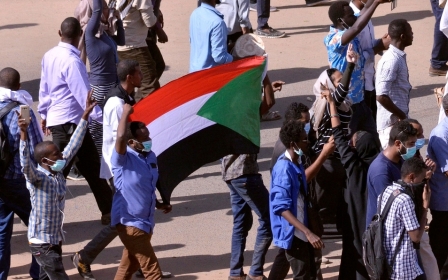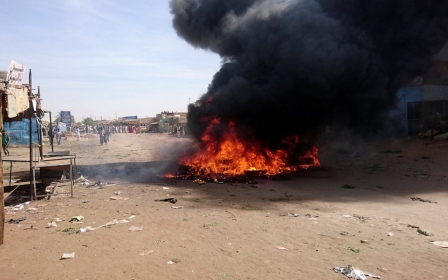Sudan political parties call for 'transitional council' to run country
An alliance of Sudan's opposition parties has announced it is to submit a memorandum to President Omar al-Bashir demanding the appointment of a "transitional council" to temporarily run the nation's affairs in the face of mass protests against his rule.
The announcement was made at a news conference on Tuesday organised by the National Front for Change (NFC), an umbrella group of political parties, and the Umma Party led by Mubarak al-Fadil, a former deputy prime minister.
The NFC's 22 member-parties include the Sudanese Muslim Brotherhood and the Reform Now Party led by Ghazi Salahuddin al-Atabani.
The planned memorandum will reportedly call for an interim council to govern the country until a national government, consisting of technocrats and party representatives, can be put together.
It also expected to call for the dissolution of both chambers of parliament.
Salahuddin said the Reform Now Party's political bureau had decided to withdraw from the government.
"Political parties are lagging behind the street, which is united and which continues to stage demonstrations to demand al-Bashir’s departure," he said.
"We must work on bridging the gap between the street and the political parties."
Probe into protest deaths
Earlier on Tuesday, Bashir ordered authorities to form a panel to investigate the killing of anti-government protesters, despite his critics levelling the blame at the leader himself.
According to official figures, at least 19 people have been killed during two weeks of protests in Sudan, initially prompted by anger over rising living costs but subsequently directed against Bashir's almost 30-year rule.
Rights group Amnesty International puts the number of killed during the first few days of the protests at 37.
The state-run Sudan News Agency reported that Bashir had established a fact-finding mission to "look into the incidents of the past few days" while his government has repeatedly spoken about respecting peaceful protest, despite his security forces using live fire.
The Sudanese Doctors Committee confirmed that hospitals treated protesters injured by live fire and tear gas after protests in the capital Khartoum on Monday.
Live streams broadcast on social media through the day showed crowds in different parts of the city centre marching through the streets, chanting and staging sit-ins before being rushed by security forces.
'Infiltrators'
Daily demonstrations against Bashir's rule have spread across the country since 19 December, when protesters in the city of Atbara torched the ruling National Congress Party's local offices.
Bashir's government has repeatedly claimed the protests had been "infiltrated" to spark unrest, blaming students from Darfur, where he is accused of genocide against the local population while his forces fought rebel groups.
Sudan is facing an acute foreign exchange crisis and soaring inflation despite Washington lifting an economic embargo in October 2017.
The foreign exchange crisis has steadily escalated since Sudan's partition in 2011, when South Sudan broke away, taking with it the bulk of oil revenues.
Inflation is currently running at 70 percent and the Sudanese pound has plunged in value, while shortages of bread and fuel have hit several cities.
New MEE newsletter: Jerusalem Dispatch
Sign up to get the latest insights and analysis on Israel-Palestine, alongside Turkey Unpacked and other MEE newsletters
Middle East Eye delivers independent and unrivalled coverage and analysis of the Middle East, North Africa and beyond. To learn more about republishing this content and the associated fees, please fill out this form. More about MEE can be found here.




